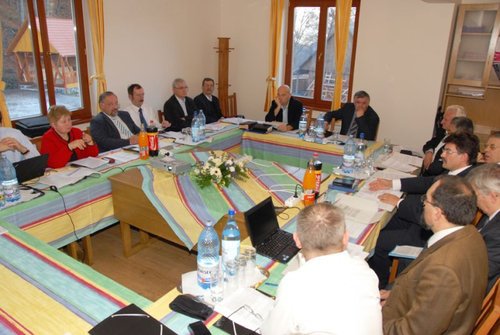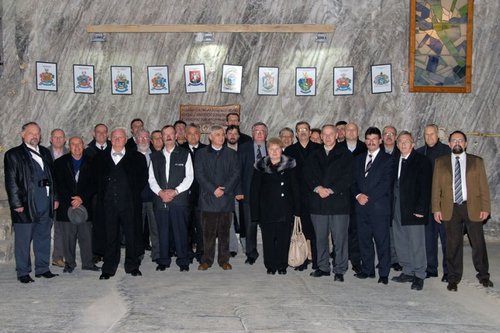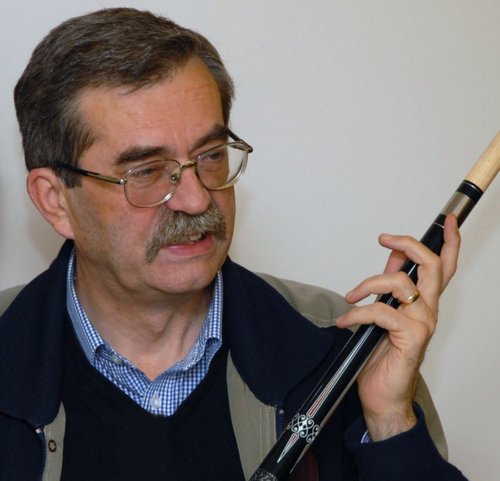As a way to celebrate the 450th anniversary of the publication of the Heidelberg Cathechism, in its summer session in Szombathely, the General Convent decided to summon the Common Synod of the Hungarian Reformed Church. The Synods's agenda will include the approval of the Catechism's new Hungarian wording and the alteration of certain passages in the shared constitution. This will be the first meeting of the Synod after the 2009 declaration of the Reformed unity within the Carpathian basin. The condition for its summoning of is that by 31 January, 2013 smaller assemblies discuss and approve of the topics to be put on the agenda. The presidium set the date of the event for 28 June, and its hosting town will be Debrecen.

Earlier this year church leaders were invited by the Transylvanian Reformed Church District to Parajd, where the Urbán Andor Reformed Conference Centre was officially opened. Here a decision was made regarding a special edition of the Heidelberg Catechism, which, beside the new Hungarian translation, would include the text of the creed in German, English, Slovakian and Romanian. Suggestions for alterations in the common constitution will be elaborated by the Church Constitution Committee of the Hungarian Reformed Church.
The presidium finalised the shared budget of the Hungarian Reformed Church for 2013, and negotiated the possibility of the Hungarian Reformed Christian Calvin Church in Croatia fully joining the unity. This Church, based on the decision made at the Berekfürdő meeting, already participates with the status of advisor in the work of the GC.
At the plenary meeting in Szombathely, also related to the anniversary, a decision was made about organising a confession knowledge competition, and the compilation and publication of a register which will list all affiliated Reformed churches in the Carpathian basin. These efforts will hopefully bring together churches that have never worked together before.

The presidium discussed the Reformed programmes to be organised in Kassa, the town to become the Cultural Capital of Europe next year. The session's other significant discussion topics were the presently on-going nomination and election of new church leaders in the Transylvanian and the Serbian church districts, the existential difficulties of minority churches and the situation of the diaspora after all in Western-Europe. The presidium has unanimously agreed to maintain and extend the minister-sending programme based on the feedback of congregations, and with the shared budget it will support the Association of Hungarian Protestant Churches in Germany. The Presidium of General Convent started those programs which aim to support the diaspora communities 2 years ago, including regular visits and service of Hungarian pastors in the Western-European cities on the cost of GC.
An account was given about this year's collection of the Reformed education fund, and the presidium was informed that for the very first time institutions of Reformed higher education were also to join in. Some updates were given regarding the situation of the unlawfully re-nationalised Székely Mikó Collegium. Sadly, the incident of its confiscation by the Romanian state might be repeated in the case of other church properties.
The presidium said good-bye to one of its members, the retiring bishop Géza Pap, who had been actively involved in the Reformed church life of the Carpathian basin and the establishment of the Hungarian Reformed Church in 2009.

Presidium members visited the salt mine of Parajd, where, 120 meters under ground, inside the ecumenical chapel they inaugurated a plaque and placed the coats-of-arms of member churches of the Hungarian Reformed Church.
reformatus.hu
Translated by Katalin Burns